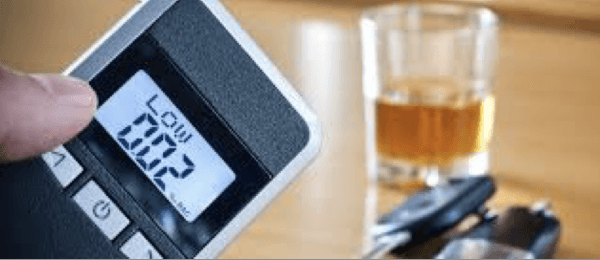Second-Time DUI Offenders May be Eligible for Reduced Sentence
Will the New Pennsylvania Ruling Reduce Your DUI Penalties?
If you were recently charged with a DUI offense in Pennsylvania and considered a “second-time offender” because you already completed the ARD program for a previous offense, you may be eligible to have your current sentence/punishment reduced.
You may be eligible for lower penalties under the Pennsylvania Post-Conviction Relief Act (PCRA) if:
- You are currently serving your sentence as a second-time DUI offender;
- You have not previously litigated or waived the issue of whether you committed the first-time offense; and
- You file for relief within one year from the date of the judgment.
Defendant’s Acceptance of ARD Program Alone Cannot Heighten Defendant’s Sentencing

Recently, the Superior Court of Pennsylvania determined in Commonwealth v. Chichkin and Commonwealth v. Roche that the sole fact that a defendant completed an Accelerated Rehabilitative Disposition (ARD) program in the past, cannot be used as a “prior offense” for sentencing purposes because doing so violates constitutional due process.
In other words—your second DUI offense could be treated like a first DUI offense.
As you may know, a first DUI conviction has drastically different penalties than a second DUI conviction in Pennsylvania.
Read more about this new DUI ruling in Pennsylvania.
By being admitted to the ARD program, a defendant avoids trial and is not required to admit guilt. Therefore, it cannot be considered as a “prior offense” for DUI sentencing unless the Commonwealth proves to a jury beyond a reasonable doubt the fact that the defendant has committed a prior DUI offense or the defendant admits to having committed the prior DUI offense.
The difference between a first-time and a second-time DUI offense is significant because the law imposes mandatory minimums for repeat offenders. In addition, a third-time DUI conviction may result in felony charges.
Ketchel Law Successfully Reduced Sentence for DUI Offender who Previously Completed ARD Program
The PCRA allows individuals who are serving a sentence to challenge their conviction on the grounds that their conviction is unconstitutional.
Because the ruling in Chichkin held that it was unconstitutional to use an ARD as a “prior offense” to sentence a person as a second-time offender, Ketchel Law recently used this ruling to successfully argue a PCRA petition that resulted in the resentencing of a second-time DUI offense as a first-time offense for the client.
The client was eligible for relief because he was still serving his sentence, had not previously litigated or waived the issue, and timely filed the PCRA petition (within one year of the date of judgment).
Ketchel Law argued that because the court treated the fact that the client had previously completed an ARD program as a “prior” DUI offense, his sentence on the new DUI case as a second-time offense was illegal. The court agreed and re-sentenced the client as a first-time DUI offender.
This changed the defendant’s sentence from a misdemeanor of the first degree (M1) to an ungraded misdemeanor and reduced the amount of allowable supervision from 5 years to 6 months.
If you have recently been sentenced on a second DUI offense and your first DUI was an ARD program, call Ketchel Law right away to inquire if you are eligible to file a PCRA petition and possibly have your sentence changed.
If you were charged with DUI in Pennsylvania, Justin Ketchel can help build a strong defense for your case and keep fines and sentencing to a minimum.
The first step is to get a free legal consultation from an experienced and successful DUI Lawyer in Pennsylvania.
OUR NUMBER ONE GOAL: HAVING YOUR DUI CHARGES DISMISSED.
CALL KETCHEL LAW TODAY: 412-456-1221 FOR A FREE CONSULTATION
For more information and to better understand Pennsylvania DUI Laws, visit the following pages:
- NEW PA DUI ruling regarding second offenses and ARD.
- Penalties for a DUI Conviction in PA
- First DUI Charge in PA
- Second DUI Charge in PA
- Third and Fourth DUI Now Considered Felonies
- Appealing a DUI
- A DUI Arrest and Your License
- DUI Court Process
- The Pennsylvania ARD Program
- DUI Field Sobriety Tests
- Fighting a DUI Charge
- The Birchfield Ruling

